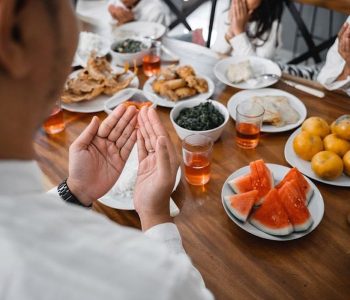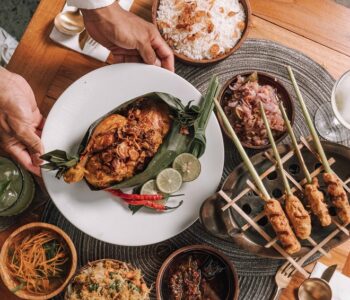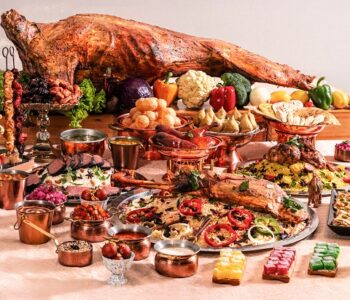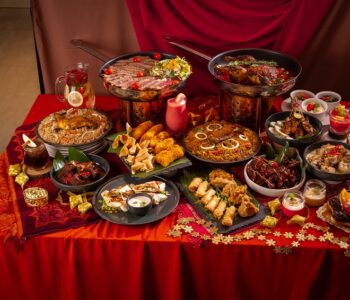Great food, prepared efficiently, is vital to the success of any chef. In addition, those who spend time and effort learning the nuances of their art often produce results ultimately provide diners the biggest bang for their culinary buck
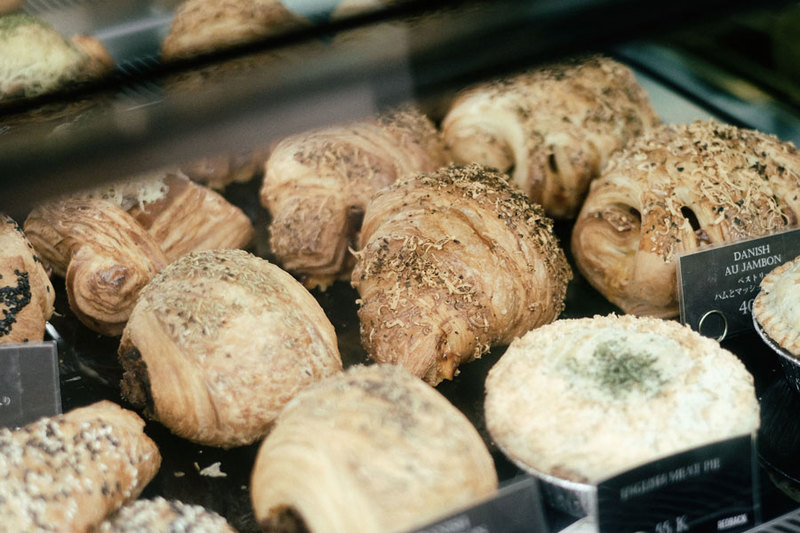
Photo by Wina Bissett/NOW!JAKARTA
My husband – who in this respect, is very Scottish – and I always try to avoid cheesy and expensive Valentine’s night dinners; but this year was our tenth anniversary, and so we thought it would be nice if we celebrated for a change. I asked him to book one of the restaurants that we usually go to on our Wednesday date nights, but , like most restaurants in Jakarta on Valentine’s day, they had a minimum order. There was only so much sushi we could eat at the price point we’d be quoted and so we decided on another restaurant. One that I had seen on Instagram earlier that week and which had a good value-for-money Valentine’s dinner for two. I texted the chef and reserved a table. As expected, we finished dinner feeling very satisfied— and slightly smug— having ended up spending just under IDR 1 million for two appetisers, two bowls of pasta, a tiramisu and a glass of wine (we went a la carte).
We decided this would be one of Jakarta’s few restaurants that would make it on our highly exclusive, if idiosyncratic, “we’ll-be-back” restaurant list.
The restaurant is called Ambiente, at the Aryaduta Hotel. There has been an Italian restaurant there for years, and at one time it used to be very popular. It closed some time ago and has just reopened, and I hope it does well. I find it hard to find Italian comfort food in Jakarta that is not over-priced. But Ambiente manages to satisfy my craving for affordable comfort. One of the reasons is because, as much as possible, ingredients are locally sourced and produced. For example, Tagliere Toscano, is a Tuscan style platter of ham. It is cured locally with salt, pepper and herbs for one week, and then hung to dry for between 6 and 10 weeks. To cut down costs, chef Matteo Meacci even makes fresh mozzarella and sources other cheeses made in Indonesia. So, really they limit their dependence on imports to the max. Given the risk of customs clearance delays, this is not only wise, but also enables them to cut costs by half or even two thirds.
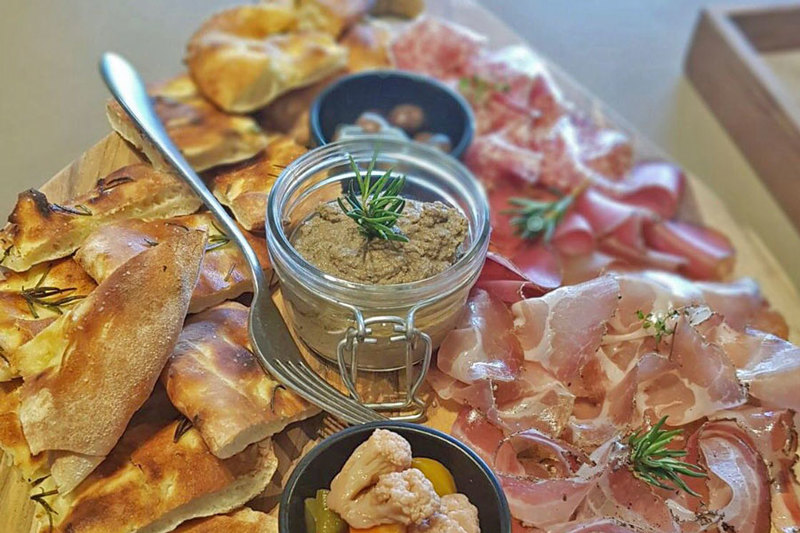
I believe that in order to be a great chef, not only should one have to deliver great food to the table, but one needs to prepare it as efficiently as possible. Good food is not only about taste, but also about value. One needs to know how to balance cost, taste and quality. This is why when I am asked about opening my own restaurant, I always say that I am not ready for it at this moment, because I know how to cook great food at home but not necessarily in a commercial kitchen which is a totally different field
When I cook Sunday dinner, or do a cooking demo, it’s expensive, because I still pay business to consumer (B2C) retail prices for lots of premium quality imported meat and vegetables, no matter the cost.
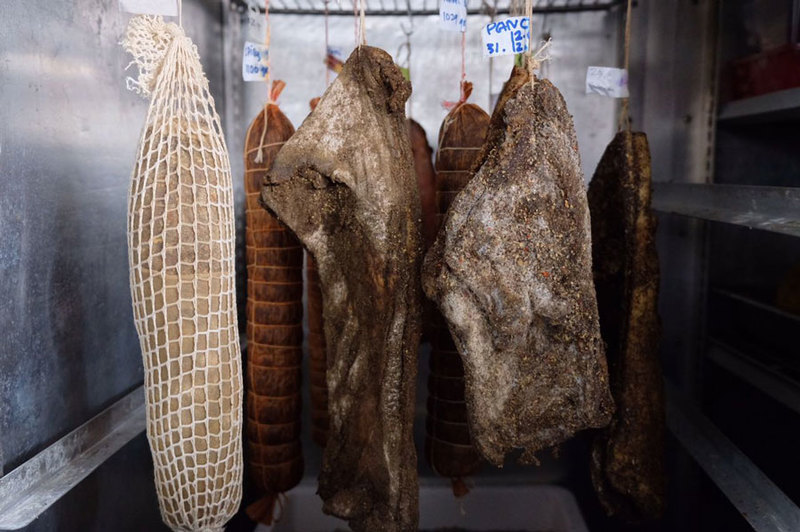
But it always comes back to money and finance. As soon as I have to cook for business, then straightaway I have to think through everything in more detail – not just to get the best ingredients at the best price, but also in terms of the process of cooking itself, such as timing, storage strategies, food handling, health and safety as well as efficiency in the cooking process—such as how many bowls I use and wash.
A chef I once met, Javier Guillen— who owns a pastry business, Cacau Noir, in Brazil— also mentioned that even one’s movements need to be quick and powerful because time is money. The longer it takes to make your macaroons the more expensive they become to produce, and the less profit you get. It’s unbelievable— we’ll be doing time and motion studies in the kitchen next!
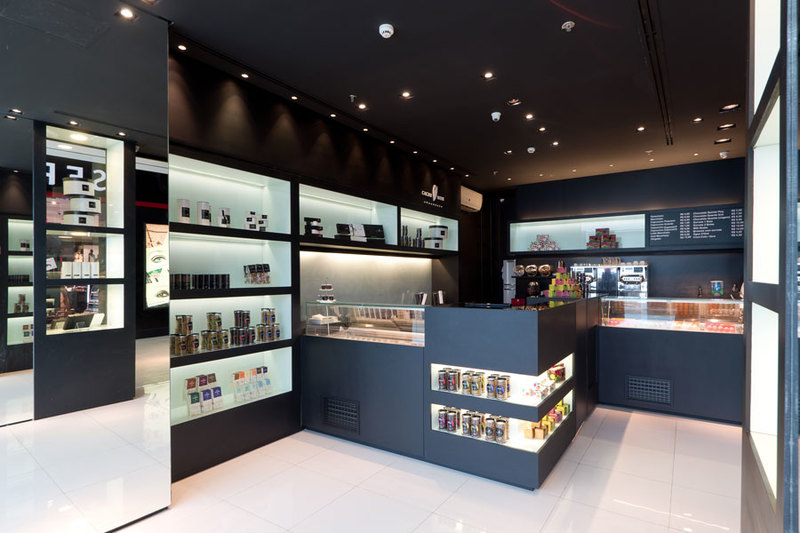
With the growing interest in all things culinary, we sometimes forget that the market is still very price sensitive. Yes, we are now willing to spend more money on eating out but price does matter. And price does strange things; when we pay a lot, our expectation also increases, sometimes out of all proportion. Ironically, most of the time the restaurants that we are happy to return to are the ones that offer affordable prices, even if the food might only be cukup bagus. Food tastes better if we don’t have to worry about the bill at the end of our meal.
Talking about value for money reminds me why my husband and I really enjoy making trips to Barcelona and Bruges. We find food there is much more reasonable than our other local culinary nirvana, Singapore. We can take the whole lot of in-laws out to eat, without breaking into a cold sweat. Ingredients are fresh and tasty, high quality and rich in flavour. For me, Bruges is one of Europe’s great culinary cities, with tons of French-influenced restaurants within easy walking distance of each other, many either Michelin starred or Michelin recommended (Bruges has one of the highest ratios of Michelin stars per capita in the world). Somehow, in Bruges, artisanal cheese makers, chocolatiers, independent breweries and charcutiers are often small, locally family owned businesses. They not only just survive but also thrive. And all of this at almost half the price you get in France.
If you thought Jakarta was price sensitive, the market in Surabaya is even more so. So you can imagine how difficult it is to balance both price and quality there.
During a pastry course in Surabaya, I met the owner of Redback Coffee shop, which is extraordinarily good for both coffee and viennoiserie. Redback is a wholesale coffee company based in Hong Kong with a franchise in Surabaya. So not only does the owner, Jemmy Setioyuwono, need to maintain quality, and keep prices down, he also needs to pay a royalty fee to the franchisor.

In order to survive in his business, Jemmy needs to minimise his costs of production as much as possible. To do this, he spent at least 3 years learning both coffee brewing and pastry making, just to understand the stages of production. As a result, they don’t need to hire a chef or a coffee specialist in order to run their business, they train their own employees and are virtually “self sufficient”.
Despite the costs of importing coffee beans, butter, almonds, and other ingredients, they are still able to sell high quality products at competitive prices because they do all the process in-house, from roasting their own coffee, to roasting and grinding their own almonds and making their own almond paste for their delicious croissant. In order to minimise food waste and maximise freshness as much as they can they only bake in small batches, up to four times a day, so they can sell pastries quickly and serve them warm.
It’s such an honour to to know that there are people who place their customers as their first priority. It is very easy to compromise on the quality of the product to be able to create a higher profit margin. Bakers and chefs like Jemmy, and Matteo demonstrate, that at the end of the day, quality speaks for itself.
_______
This article is originally from paper. Read NOW!Jakarta Magazine April 2018 issue “Money and Finance”. Available at selected bookstore or SUBSCRIBE here.


